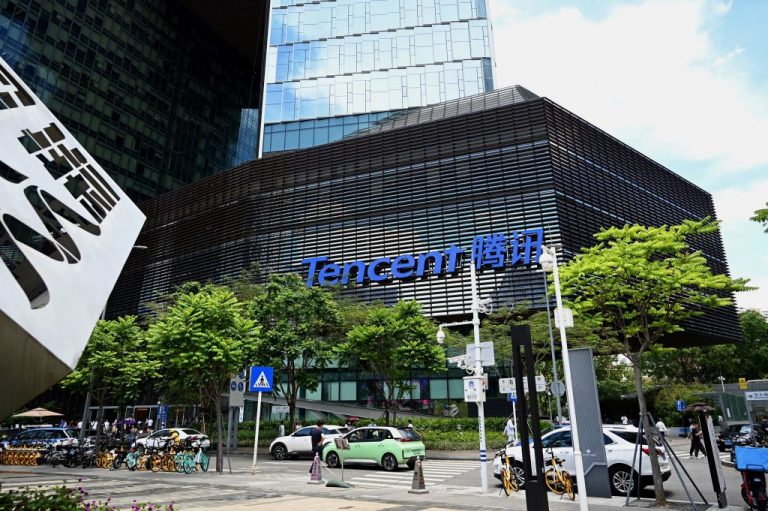Chinese tech company Tencent has deep ties with the Chinese Communist Party (CCP). Guangzhou-based Southern Metropolis Daily reported that Tencent has established 275 party branches within its offices. The company employs more than 60,000 people, out of which over 11,000 are party members. Tencent was founded in 1989 by five friends, led by Ma Huateng. Ma is known to be one of the richest men worldwide as Bloomberg reported his net worth to be around $55.5 billion.
Three members of the company’s Discipline Inspection Commission and 11 members of the Party Committee are all core executives. Plus, the company also has 724 part-time and 10 full-time party officials.
A tweet by Han Lianchao, human rights lawyer and a former employee at China’s Ministry of Foreign Affairs, states that Tencent had achieved “outstanding results in party building, ensuring that where the company’s business develops, the party organization and party work will follow up.”
Tencent established its first CCP branch just five years after the company was founded back in November 1998. The first Party Committee was established in 2011. Tencent commemorates “Party Member Day” on July 15 every year when CCP members working at the company’s offices in different parts of the country celebrate the achievements of the communist party.
In August last year, human rights activist, Jennifer Zeng, tweeted a photo showing Tencent employees and CCP members holding up a communist banner at the company’s corporate headquarters in Beijing.
Success
You are now signed up for our newsletter
Success
Check your email to complete sign up
The photo is from a 2016 party event titled “Tencent to Acquire Wisdom of Party Building.” Organized by a branch of the CCP at Beijing Normal University’s School of Journalism and Communications, the event was attended by 50 students, academicians, and members of the party. CCP members responsible for party affairs in Tencent’s Beijing office explained the party’s operations at the company.
“All Chinese companies, public or private, are required to have a member of the CCP on staff to hand down official party edicts. In addition, many companies have an internal CCP committee that comprises part of the governance structure,” according to Taiwan News. Tencent adheres to a “party members first” principle when it comes to hiring new employees annually. Among the 1800 college students who were hired in 2017, 1200 were members of the CCP.
In an August 2020 report, The Epoch Times obtained a list of Party Members in Tencent’s staff. The 19-page list mentioned 7,723 members operating throughout party branches in several departments including cloud products, value-added products, social network operations, QQ Payment joint products, social platforms, etc.
In December 2020, reports of a major data breach indicated that this is a worldwide trend as the leak showed some two million Chinese Communist Party members were being employed by the world’s biggest companies including Pfizer and AstraZeneca making COVID-19 vaccines and financial institutions like HSBC, which was targeting accounts belonging to Hong Kong activists. The data revealed Party membership numbers and other linked information as the CCP used them to set up Party branches inside the target international organizations.
Tencent’s stakes in the U.S. and beyond
According to Business Insider, “Tencent outright owns Riot Games, the Los Angeles-based studio responsible for two of the world’s biggest games: “League of Legends” and “Teamfight Tactics.” Tencent has bought a 40% investment in Epic Games, “Fortnite,” the Epic Games Store, and Unreal Engine, a set of 3D software tools that underpins most online gaming and gaming apps. Tencent owns most of Supercell, which produces “Clash of Clans,” “Clash Royale,” and “Brawl Stars.”
The Ubisoft publisher of video games is part-owned by Tencent and the company just announced that they had achieved approval in China for The Division 2, Mario + Rabbids: Kingdom Battle and Rabbids Party. Something that Business Insider calles Tencent’s “gatekeeper” status. “For example, when Activision wants to bring “Call of Duty” to China, it partners with Tencent. Same goes for EA, Sony, and Ubisoft.”
Censorship
Tencent’s online censorship team is led by the CCP’s Deputy Party Secretary. 80 percent of the team is composed of CCP members. The censorship team plays the crucial role of manipulating public opinion and deleting content that does not favor the regime’s agenda.
A Chinese media professional, who chose to remain anonymous, revealed to The Epoch Times that CCP’s internet security inspectors and National Security Agency have been posted at Tencent. He added that the Tencent Tower in Shenzhen has at least one floor exclusively reserved for internet inspectors composed of state security police, national security staff, and online censors.
The CCP uses Tencent’s products as tools to monitor and arrest people. According to a report published at Minghui on July 30, 2020, more than 300 Falun Gong students participating in a group chat on WeChat, owned by Tencent, were kidnapped by the CCP and had their properties confiscated. They were detained illegally for over two months.
“Tencent’s development has been seamlessly integrated with the regulatory authorities of the CCP. That is to say, no matter how big Tencent can grow, how many members it can attract, and how many countries it can enter, the CCP’s internet watchdog will follow it everywhere,” the anonymous media professional stated.
Tencent has a market capitalization of $753 billion as of March 2021, placing it at the 7th spot in the list of top ten companies with the highest market capitalization in the world. However, this has not saved Tencent Holdings from the antitrust actions of the Chinese State Regulator as the company was preparing to pay fines of approximately 10 billion Yuan (USD 1.45 billion) as of July 7, in a move guaranteed to make an example of the tech giant, once loosely controlled but now cornered in a move ordered by President Xi Jinping.















